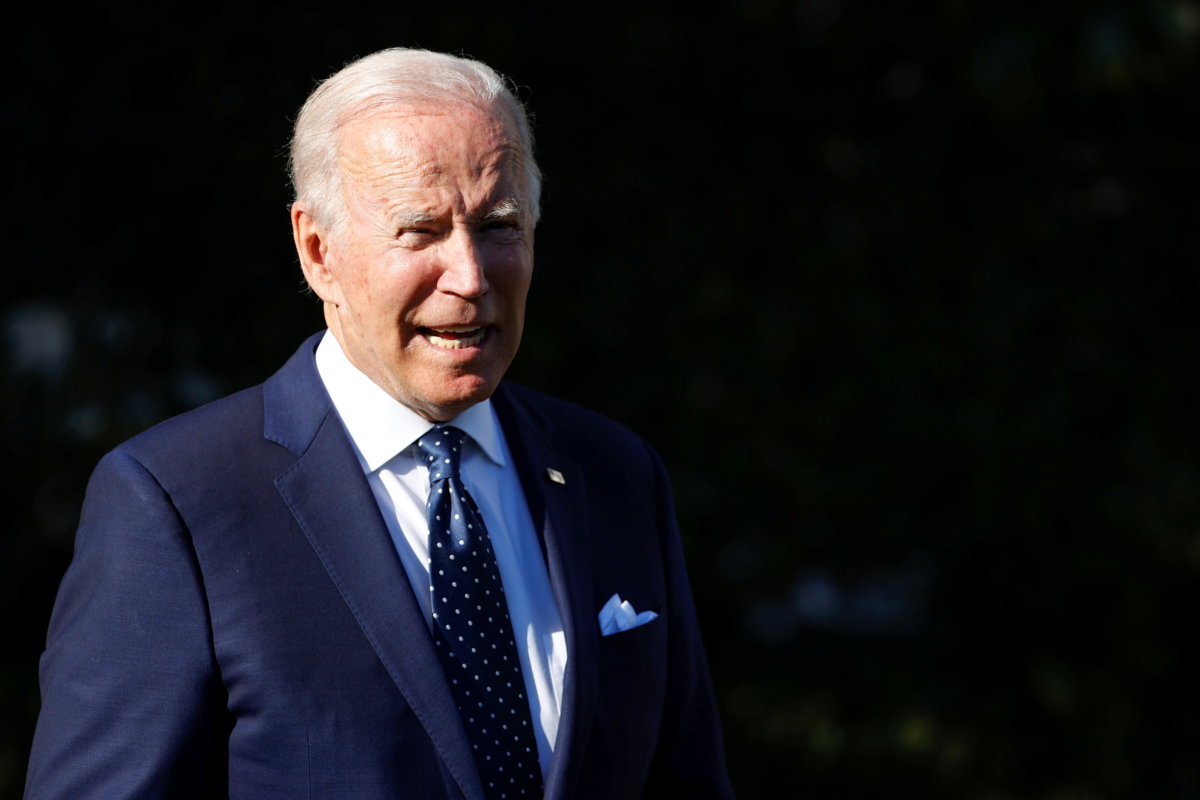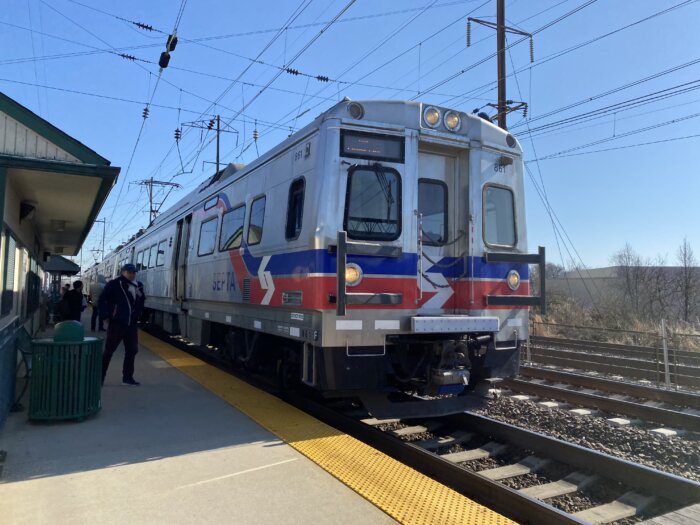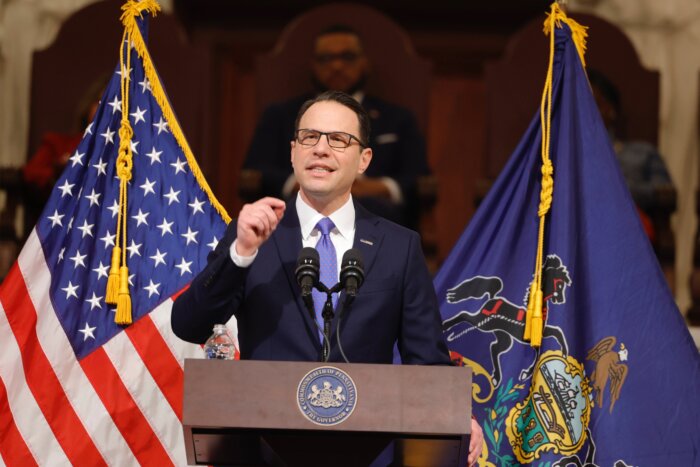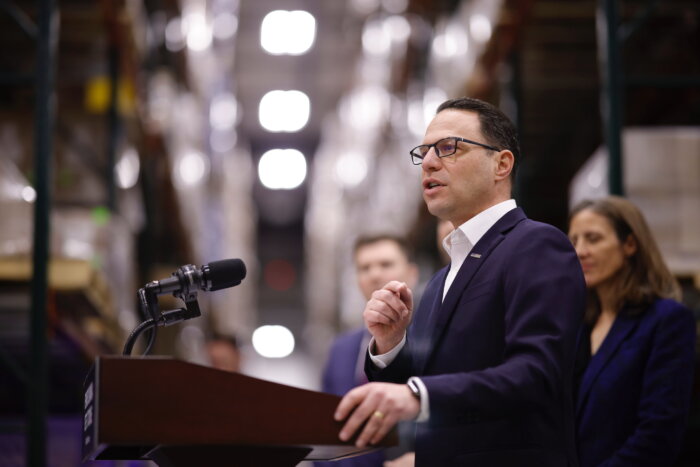By Jarrett Renshaw, Andrea Shalal, Trevor Hunnicutt and Steve Holland
President Joe Biden and Democratic lawmakers are nearing a deal on the cost and scope of their cornerstone economic revival package and hope to reach a compromise this week, people briefed on the negotiations said on Tuesday.
Biden held a busy day of meetings with lawmakers, seeking to close what may be the signature effort of his administration, a multitrillion-dollar, two-bill legislative package that expands social safety net programs and infrastructure spending.
One source said a deal could be announced midweek if things go well, a second said the White House was hoping for an announcement in coming days.
A spending package that was originally estimated at $3.5 trillion could be $1.9 to $2.2 trillion, Representative Pramilia Jayapal, the chair of the Progressive Caucus said at the White House after meeting with Biden.
Any final deal is likely to severely curtail Biden’s initial ambition. Initiatives in his original proposal that may see cuts include $322 billion for affordable housing, money for paid family leave and some $400 billion earmarked to increase home-based care for the elderly and disabled, according to a person familiar with the matter.
A program extending free community college is also likely on the chopping block, said others involved in discussions. All of the people warned that negotiations were fragile, still under way and that a deal could still collapse.
U.S. House of Representatives Speaker Nancy Pelosi has set Oct. 31 as the deadline for the House to pass a $1.2 trillion infrastructure deal that the Senate has already approved and has broad bipartisan support.
As part of a blitz of meetings testing his negotiating skills honed over decades in Congress, Biden met on Tuesday with a group of House progressive lawmakers, which has been unwilling to pass the infrastructure bill unless it is coupled with the massive budget bill that would fund Biden’s campaign pledges on climate, inequality and social programs.
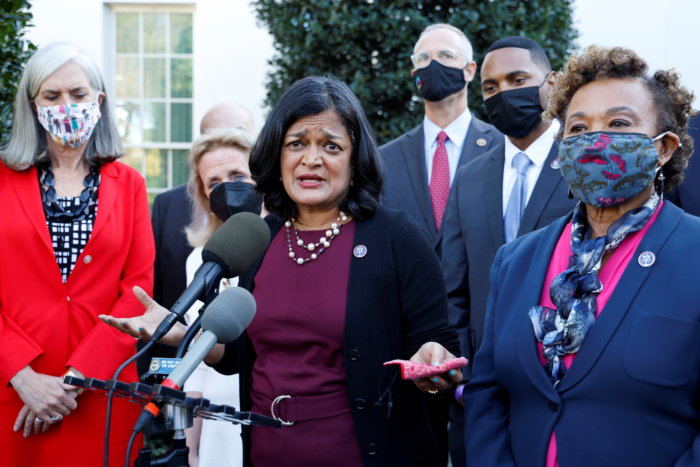
The president also met on Tuesday morning with moderate Democratic senators Joe Manchin and Krysten Sinema, who have voiced concern about the size of the bill and pushed Biden to reduce the original cost given their virtual veto over his agenda. The House is controlled only narrowly by Democrats. Republicans largely oppose the larger social-spending bill.
White House spokeswoman Jen Psaki said progress was made in the meeting with Manchin and Sinema, and that the various factions are “coming closer to a path forward.”
Biden was also due to meet with another group of moderates including Senator Mark Warner on Tuesday.
Senate Majority Leader Chuck Schumer said Democrats aim to reach a framework deal this week. Speaking to reporters following a closed-door lunch with fellow Democrats and two independents who align with them, he said: “There was universal agreement in that room that we have to come to an agreement and we want to get it done this week.”
One of Biden’s major selling points in last year’s presidential campaign was his ability to find a middle ground at a time of deep political polarization, touting his 36 years as a moderate Democratic U.S. senator from Delaware.
Weeks of negotiations, which White House officials say have been productive, have nonetheless failed to bridge the gap on the spending bill. Biden said on Oct. 1 that he would find an agreement “whether it’s in six minutes, six days or in six weeks,” but White House officials are increasingly concerned as the weeks tick by.
Administration officials have steadfastly refused to provide details on specific components of the package – and potential tradeoffs – arguing that they do not want to negotiate in public.
Manchin, the West Virginia senator, said on Tuesday he is not talking about a carbon tax in negotiations over the spending and infrastructure bills, even as some of his fellow Democrats in the Senate support it as a way to fight climate change.
Reuters



